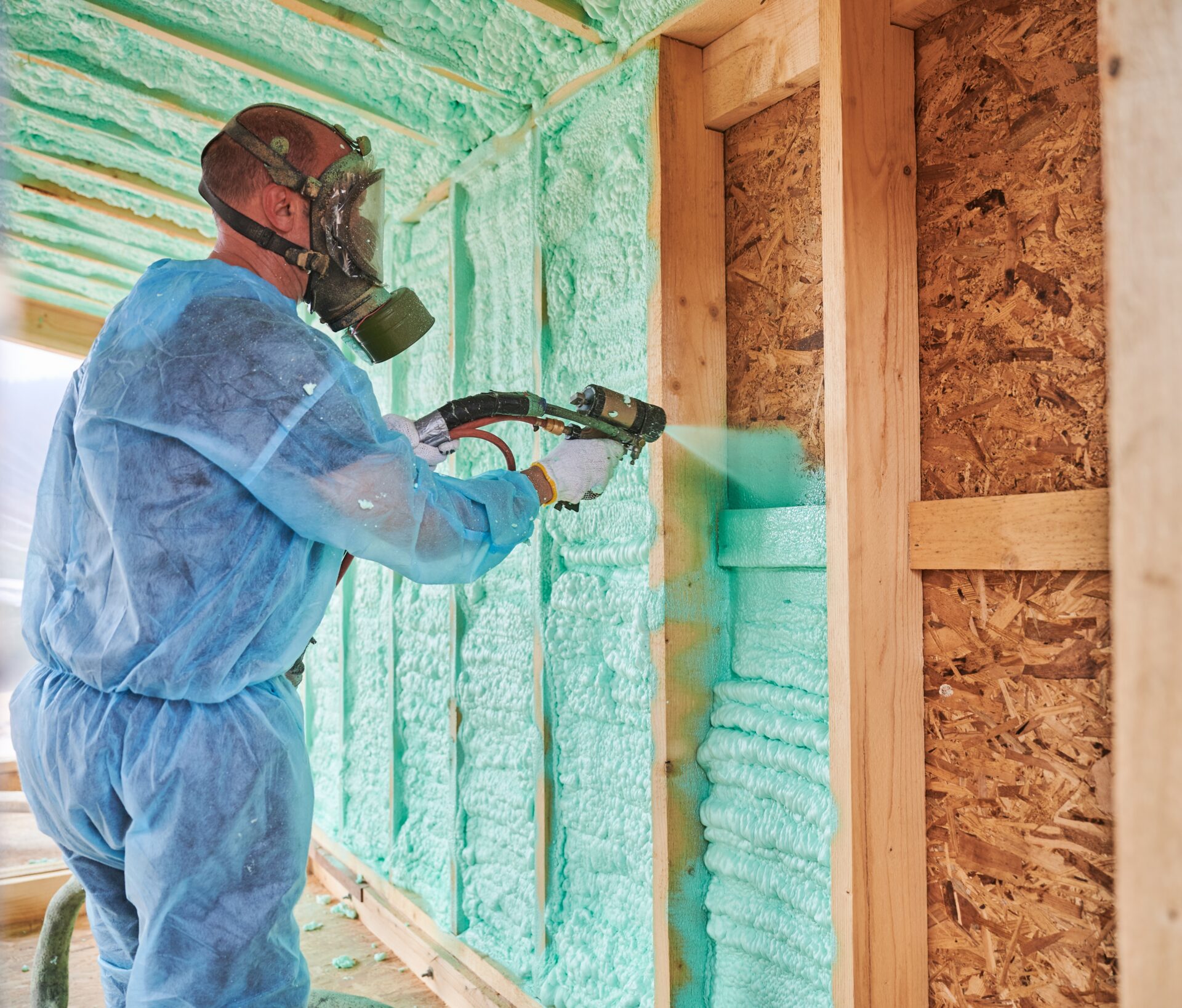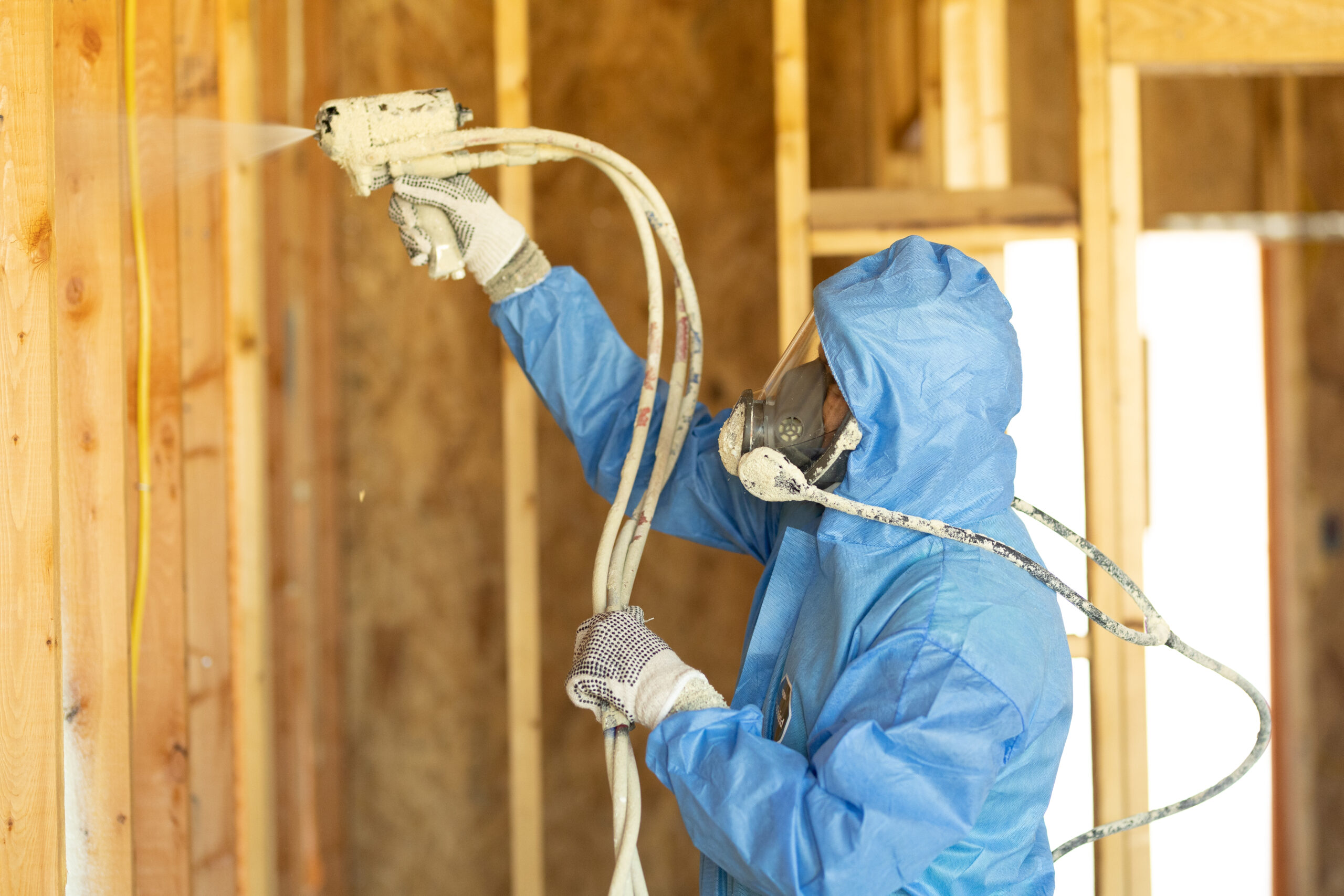Usual Misconceptions Concerning Spray Foam: Debunking the Misconceptions
Usual Misconceptions Concerning Spray Foam: Debunking the Misconceptions
Blog Article
Spray Foam: The Ultimate Service for Air Sealing and Insulation
Spray foam insulation has arised as a leading remedy for effective air securing and thermal insulation, providing an one-of-a-kind combination of properties that set it apart from conventional approaches. Comprehending the full scope of its advantages, installation processes, and contrasts with other insulation types is critical for making informed decisions.
What Is Spray Foam?
Spray foam is a functional insulation material that combines the principles of air securing and thermal resistance to improve energy efficiency in structures. Composed mostly of polyurethane or other comparable compounds, spray foam is used as a fluid that broadens upon contact with surface areas, creating a strong, constant layer of insulation. This one-of-a-kind property permits it to fill spaces, cracks, and voids that traditional insulation products may ignore, providing a superior air seal.
There are 2 main types of spray foam: open-cell and closed-cell. Open-cell spray foam is lighter and much more flexible, using outstanding noise absorption and a reduced R-value per inch - Spray Foam. In comparison, closed-cell spray foam is denser, giving a higher R-value, dampness resistance, and added architectural honesty to constructing components
The application procedure normally involves specific tools, ensuring a seamless application that sticks to different substratums, including concrete, wood, and metal. This flexibility makes spray foam ideal for both brand-new buildings and retrofitting existing structures. Its capacity to create an impermeable obstacle substantially adds to reducing power usage and improving indoor air high quality, thus making it a favored option among home owners and builders alike.
Advantages of Spray Foam Insulation
One of one of the most substantial advantages of spray foam insulation is its extraordinary ability to create a constant air obstacle, which properly lessens energy loss. Unlike traditional insulation products, spray foam broadens to fill up cracks and gaps, making sure that air leakage is significantly decreased. This particular not only enhances power efficiency but additionally brings about decrease energy bills with time.
In addition, spray foam insulation supplies premium thermal resistance, adding to a more secure interior atmosphere. Its high R-value per inch enables for efficient insulation in constrained areas, making it perfect for attic rooms, wall surfaces, and crawl rooms. Additionally, the moisture-resistant residential or commercial properties of spray foam aid stop mold and mold development, advertising healthier living conditions.
One more critical advantage of spray foam insulation is its sound-dampening qualities (Spray Foam). It effectively decreases noise transmission between spaces, creating a quieter and a lot more comfortable home setting. The resilience of spray foam likewise stands out, as it does not droop or resolve over time, maintaining its performance throughout its life-span
Exactly How Spray Foam Functions
Understanding how spray foam insulation functions is important for valuing its efficiency in air sealing and thermal resistance. Spray foam insulation is composed of 2 primary parts: isocyanate and polyol resin. When these components are combined, they undertake a chain reaction that causes the product to broaden rapidly, creating a thick foam that loads voids, splits, and cavities.
As the foam expands, it complies with surface areas, forming an impermeable seal that significantly minimizes air seepage. This particular makes spray foam insulation extremely efficient at avoiding drafts and wetness penetration, which can result in energy loss and damage in time. Furthermore, the closed-cell variation of spray foam supplies remarkable thermal resistance due to its stiff framework, effectively reducing warm transfer.
The unique residential or commercial properties of spray foam enable it to adapt irregular surfaces, guaranteeing comprehensive protection and a smooth obstacle. As an outcome, spray foam insulation not only improves energy effectiveness however additionally adds to improved interior air top quality by decreasing the accumulation of irritants and contaminants. Ultimately, recognizing the auto mechanics behind spray foam underscores its function as a premium option for insulation and air securing in both business and property applications.
Installation Refine Review

Before installation, the space has to be effectively cleaned up and prepped, making certain that surface areas are without wetness, dust, and particles. This action is essential since contaminants can endanger adhesion and general efficiency. As soon as the location is prepared, the application involves mixing both elements of the spray foam, which broadens upon contact and fills voids effectively.
Educated experts need to carry out the setup, utilizing specific equipment to ensure consistent protection and ideal thickness. Safety and security precautions, consisting of putting on protective equipment and making certain appropriate ventilation, are crucial during this procedure. After application, the foam generally treatments rapidly, developing a solid obstacle that improves energy performance.
Comparing Spray Foam to Conventional Insulation
When reviewing insulation choices, spray foam insulation stands out click to read more in comparison to traditional materials such as fiberglass and cellulose. Among the main advantages of spray foam is its next page remarkable air sealing abilities. Unlike fiberglass and cellulose, which can allow air infiltration, spray foam expands upon application, filling up crevices and spaces to produce a closed seal. This causes boosted energy performance, as less warmed or cooled down air escapes the home, causing lower utility bills.
In addition, spray foam offers a higher R-value per inch than conventional insulation kinds, using more efficient thermal resistance in a thinner account. This particular is especially helpful in rooms with limited tooth cavity deepness. Spray foam is immune to moisture and mold development, which can be a substantial concern with cellulose and fiberglass, especially in damp settings.
However, spray foam insulation usually lugs a higher upfront expense than its standard equivalents. Homeowners should evaluate this preliminary financial investment versus long-term energy savings and performance benefits. Eventually, while both insulation types serve their function, spray foam arises as an extra innovative remedy for modern-day insulation needs, particularly in terms of air sealing and thermal efficiency.

Final Thought
In summary, spray foam insulation represents a highly effective solution for attaining optimum air securing and thermal resistance. Its special residential properties, consisting of wetness resistance and noise dampening, make it suitable for various applications in both brand-new building and constructions and retrofitting projects (Spray Foam). Although the initial prices might be higher contrasted to typical insulation products, the visite site long-term advantages, such as substantial energy savings and boosted indoor air quality, warrant the investment and underscore its worth in contemporary building techniques.
Spray foam insulation has arised as a leading service for effective air securing and thermal insulation, offering an one-of-a-kind combination of properties that establish it apart from traditional techniques.Spray foam is a versatile insulation material that incorporates the principles of air securing and thermal resistance to enhance power efficiency in buildings.When reviewing insulation choices, spray foam insulation stands out in contrast to traditional products such as fiberglass and cellulose. Inevitably, while both insulation types offer their purpose, spray foam emerges as an extra advanced service for modern-day insulation needs, especially in terms of air securing and thermal performance.
In summary, spray foam insulation stands for a very effective service for attaining optimum air sealing and thermal resistance.
Report this page